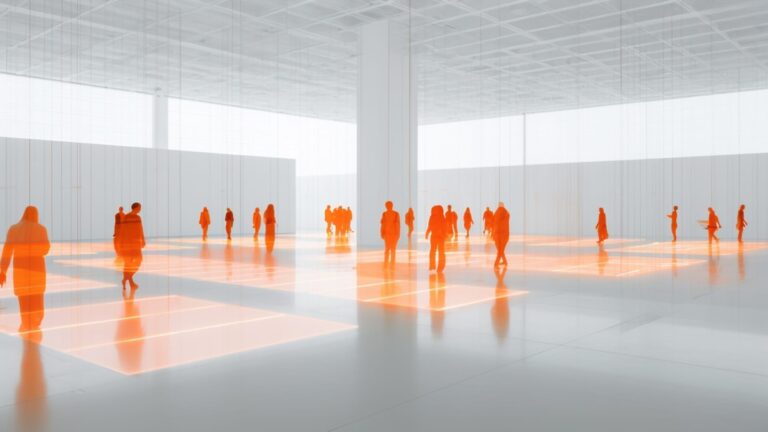Butlr heat sensing tech provides insights into office space utilization.
Courtesy of Butlr
A version of this article first appeared in the CNBC Property Play newsletter with Diana Olick. Property Play covers new and evolving opportunities for the real estate investor, from individuals to venture capitalists, private equity funds, family offices, institutional investors and large public companies. Sign up to receive future editions, straight to your inbox.
As more and more employees return to the office, by choice or by force, large companies are more interested than ever in understanding how they use the space. The pandemic fundamentally changed how and where people work, and even in the return-to-office dynamic, there is a greater focus on how to best utilize and monetize office space, as well as make it more energy-efficient.
To that end, some companies are using body heat. Butlr, a 6-year-old, San Francisco-based startup that was a spinoff of MIT Media Lab, leverages body temperature technology to understand how humans act and interact in the office without using cameras. In other words, it’s anonymous.
Sensors placed around the office space record the heat and then incorporate AI to look at every aspect of physical interactions. That includes occupancy, foot traffic, frequency and location of meetings, areas that are unoccupied or crowded and the impact on heating and cooling systems. But it goes beyond that.
“By understanding how colleagues act and interact in the office while ensuring privacy, you can make it a place that is more productive, collaborative and aligned with the corporate culture – one where they look forward to being there,” said Honghao Deng, CEO and co-founder of Butlr. “This can impact retention and performance, and you may even see attitudes shift from negative to positive.”
Companies use the data to make decisions about layout and design, retrofits, hybrid work schedules, maintenance, cleaning schedules and lease negotiations.
The costs of so-called office fit-outs, or upgrades to spaces, are on the rise, according to a new report from JLL.
“Increased focus on in-office attendance, employee experience and sustainability performance is leading focus on investing in high quality workspaces, with increased spend on materials and finishes and shifting cost profiles on many projects,” according to the report.
JLL also noted that those rising costs, as well as economic uncertainty, are contributing to hesitancy in CRE investment decisions. That has the potential to have long-term impacts on the overall workplace. Both raw material price increases and labor shortages are increasing overall construction costs across all regions.
Still, more and more companies are pushing workers back to the office and solidifying flexible work arrangements into the culture. That flexible work paradigm, according to Deng, has more employers seeking data and insights into actual office usage.
“You can think about this from both a cultural and a financial perspective,” he said.
In April, Butlr announced the completion of its latest investment round for a total of $75 million in funding to date. The company’s clients span office, higher education and senior care and include names like Verizon, CBRE, Carrier and Compass Group.
The company serves customers in North America, Europe and Asia.

